God, the lines I’m about to write are pretty crazy…
I interviewed Jesse Mecham, founder of the YNAB method (aka You Need A Budget).
If you’re reading me today, it’s partly thanks to him! Because in 2013, when I was looking for a way to save for home ownership in Switzerland, I came across his product. And while chatting on his YNAB forum, I discovered the FIRE movement (“Financial Independence, Retire Early”).
And the rest is history.
So I’d like to take this opportunity to thank Jesse immensely for creating YNAB in the first place, and then accepting my invitation for this interview.
MP video interview with Jesse Mecham
Here’s the interview with YNAB’s founder:
Important note: you can activate German or French subtitles if they don’t appear automatically.
Video transcript
And if you’d rather read than watch the video, then here’s the transcript of my interview with Jesse.
1. Can you introduce yourself to our readers?
My name is Jesse Mecham. I am the founder of YNAB, and I started it back in 2004. Well, my wife and I were still finishing up, well, not finishing. We had three years of school left for me, a year for her, and we needed to make extra money.
So, while everybody talks about, you know, you’re an entrepreneur, you had these grand entrepreneurial visions. I had none of those.
We just needed to make extra money to pay the rent, to hopefully make it through school without borrowing any money. So that was why I started YNAB. My wife and I had built a little spreadsheet and it was working for us. Despite our meager income, we were actually able to scrape together some savings.
And so, I had the audacity to believe that it might help other people. So with that, it was born. And then it’s just morphed over time. As technology has changed, we’ve tried to keep up with it as well.
I had the audacity to believe that it might help other people.
My dad was an attorney my whole life, practiced it, always did his work because he wanted to provide for the family. He never really gave me the impression that he enjoyed it.
He always said he enjoyed helping people.
But you got the feeling there was a lot that he didn’t like about that world.
My mom was a stay-at-home mom. She was there and got me from school, and that was actually pretty amazing.
So I grew up with five siblings, it was a full house.
And then as far as education goes like I kind of alluded to I ended up getting a Master’s degree in accountancy from Brigham Young University, and I worked as a CPA for a year out of school before jumping over to do You Need A Budget full-time.
As for family, I’m still married to the same woman I mentioned before, my wife Julie, and we have seven kids. And yes, it is a full house. Yes, they were all on purpose. Trying to think what other questions people normally ask. Yes, it is busy, but it’s lively and fun too.
2. Are you more Zürich Paradenplatz or Geneva water jet?
I had to look those up, but definitely more of the water jet type. Financial District sounds stuffy and I don’t know, doesn’t sound very fun.
That water jet thing, that looked pretty cool. I like things pretty low-key and so Zürich stuff is not really my vibe.
3. What’s the book you’ve given the most to your acquaintances?
The book that I’ve most given to acquaintances is actually a book called Healing Back Pain by the late Dr. John Sarno out of NYU.
Indeed, I struggled with severe low back pain for seven years from the time I was 25 until about 32.
No, that’s not true. 23, 23 until about 30. And it was seven years. That was the important part.
Just low back pain. You wake up; it’s there. You’re sitting; it’s there. You’re standing; it’s there. You’re walking; it’s there. You’re running; heaven forbid, it’s there.
And it can really mess with you psychologically.
And it’s real pain. And it really, it beats you down.
Two weeks after reading it, […] the back pain disappeared.
Dr. Sarno had this theory called tension myositis syndrome that this real pain is caused by an emotional response that you have. And I read his book and two weeks after reading it, working through it, journaling, getting a therapist to let me process feelings, all those healthy things, the back pain disappeared. And occasionally it rears its ugly head, but it’s not very often.
So there are many, many times where someone will say: “I’ve had this pain; it hasn’t gone away for X weeks or months or years”, and I just have a bunch of these books, Healing Back Pain, on my bookshelf. I buy them in bulk and give them to people.
4. If you could put up a gigantic billboard in the middle of Salt Lake City, what would it say?
Well, thankfully in Salt Lake City, I don’t think there are millions of people passing by, because I think I would move if that were the case.
I think I would say something to the effect of “Spending can be joyful without causing any feelings of guilt or second guessing”.
Joyful spending?
And if I were to shorten it because it’s a billboard and I want the letters to be bigger, I think I would just say joyful spending.
No, I would put a question mark.
Joyful spending?
Yeah, something like that. And they would think it was a Christmas billboard or something. Here’s a way to spend money. But fact of the matter is, if your spending isn’t bringing you joy, there is a deeper problem to solve. And I firmly believe you can achieve it. We’ve seen it happen. So that’s what I put on the billboard.
5. I imagine that your net worth could allow you to retire today (with your YNAB shares). Why don’t you?
Yeah, if I were to sell You Need A Budget today, I definitely could retire.
Why don’t I do it?
It’s, I’m learning still. It’s still challenging. And…
It’s a good thing. Like it’s doing good. So you’re doing something good that’s helping people.
It’s helping the team. It’s good for the team, for their families. It’s good for our users. So, like, there’s something that’s an actual objective, good in the world, that I get to participate in. Check.
I get to learn new things every day. Check.
And it challenges me because it’s new and changing and what’s AI gonna do now and what were phones gonna do back then, and what are wearable gonna be like when they’re just like, you have this omniscient, not omnipotent, but omniscient wearable that people just rely on for everything. How’s that gonna change how we spend our money? And how can we make sure that our money is still being spent intentionally without that pernicious second guessing where we feel like it’s just dripping through our fingers, you know, like sand. And because of all that, I just, I’m terribly interested in it still.
So the only reason that I would retire is if, you know, something fundamentally changed in my life where it was just like, hey, you cannot devote the time to that. You’ve got to devote it to this other thing.
Besides that, I just want to keep going.
And it keeps you sharp, you know? And we’ve got to have, if you retire, you got to have some other thing you’re going to do anyway. You can’t just retire and play golf. I actually know a couple of people that tried that and they didn’t last long. You know, they ended up having to find something.
6. Now that you have a CEO in place, what does a regular day look like for you?
I do higher level strategy.
I don’t do a lot of like, just like kind of nitty gritty management. I don’t do any management. I don’t have any direct reports. That is by design and lovely. I loved all of my direct reports over the years, but I really enjoy just not having that responsibility. So I get to mentor in other ways and I get to still be involved in projects.
Sometimes the nitty-gritty of a project, and that’s a lot of fun, but I don’t have to work on company communication, the nuance of communicating with 180 people. That’s nice. So Todd (YNAB’s CEO) has to do all of that.
It’s just nice [to be] part of something that’s doing a lot of good in the world.
But yeah, I’m still just every day in the business working normal hours. I don’t work overtime or anything like that. And I hope none of YNAB’s team does that as well.
And yeah, just still working and enjoying it.
And the flexibility is nice, but oversold. People often say, oh, it must be nice. You get to set your own schedule. But it’s really hard to turn off the concern and thinking you have in your brain about your business. So people are like: “Oh, it must be nice. It’s so flexible.” It’s like, well, yeah, but this is always on in my head. So, is that nice? I don’t know; it just is. You know, I’m certainly used to it by now, but don’t let anyone tell you, oh, it must be nice having flexible schedule.
Sometimes, I absolutely have to be somewhere, and there’s zero flexibility at all.
So I think it’s just nice that I get to learn and be challenged and have it be a part of something that’s doing a lot of good in the world. That’s nice.
Yet, schedule flexibility and romanticizing this entrepreneurial thing, I don’t really buy it.
7. I heard you say that the people you work with are one of your keys to business success. What is THE question you ask a job interviewee to sense if he is a good fit with YNAB core values?
That question does hit it on the head.
It is meant to be about core values. They have to be a core value fit before they’re a competency fit.
Once you’ve checked that box, then you work on competency. Um, I wish it were only one question we would have to ask, but in the latest position that we filled a little bit ago, we had 900 applicants for it, for one spot.
So we have to put the people through just, I mean, I almost apologize to candidates for the rigor that we require of them in order to throw their hat in the ring.
That being said, it is not just one question.
It is a series of questions.
And each question is meant to give the person an opportunity to show those core values.
And the questions are pretty hard to pretend. You know, you kind of get a feel pretty quickly.
So that works really well.
So it’s not one question; it’s probably 20 to 25, depending on the position, but we have found it to be extremely effective over the years.
8. Could AI be useful in YNAB?
Oh, yeah, absolutely.
I think it’ll be everywhere.
And hopefully, in a way that you don’t even see it like this AI thing with the large language model that we’re seeing right now with GPT, it’s, it’s really on its face amazing to watch and to see and the iterations are so fast.
And people are thinking man AI is crazy, but they don’t realize that AI has been there, that AI is what feeds you the next thing on Instagram is also extremely effective.
And the AI that figures out how it should market to you is also, unfortunately, extremely effective.
So we’ve seen, like AI has been in the background for years and I hope with You Need A Budget that it’s, if there needed to be some chat assistant in YNAB, sure, we would launch that.
But I think a lot more of it’s gonna be behind the scenes, where you don’t actually know just how helpful this is and all the magic that’s going on behind. Because at the end of the day, the user has to have just this amazing experience where they basically say, I’m using this and it’s fantastic.
And I don’t even know, but it just makes me feel great. And their spending is better. They’re feeling more joy. They’re more confident, checks all those boxes.
I think AI is going to be tremendously helpful there. We’ll see exactly how we implement it, but it’ll be… It’ll help.
Absolutely.
9. Do you plan the company to outlive yourself?
Yeah, I mean the high level strategy is you just hire great people and we do kind of have the rule that you should always be replacing yourself like in any position, you should always just be operating with that thought like I should replace myself because there’s two things it does: it helps you grow people that are reporting to you, and it also helps you think.
It’s like stepping out of your role instead of just kind of working in it.
You’re stepping out of it, and that helps quite a bit.
So in any job, people should always just think like, how could I replace myself?
You should always just be operating with the thought that you should replace yourself.
And they’ll find they get promoted like crazy because they just start to behave in a way that is higher leverage and you just keep repeating that over and over.
So, in that sense, we just, we’re just hiring great people. People ask me; it’s probably the most common question people ask me. They’ll say, when are you going to sell? What’s your five-year plan?
I just, I take it more day to day.
I want to build a company that is good, that does good, that is, that helps. And that, that lasts, right? That, that a lot of it is just making sure you stay around and we’ll just take it one day at a time, essentially.
I would never say: “Oh, I’ll never sell”, cause you just don’t know. You just don’t know what will happen. You never know what needs will arise or whatever.
But right now, I just really like owning it, controlling it, not having a boss, all those things.
10. What is THE thing that still releases intrinsic satisfaction and dopamine in your brain?
The creativity and learning, that intersection. And then when you get to throw in technology, it kind of forces your hand, like you must keep learning because the technology is gonna change. And so that’s a nice default handed to you and you better do something with this. So where I get to still be creative, I get to still kind of experiment, I get to operate small and not deal with forms and bureaucracy.
And then I get to keep learning. That’s the same thing I was doing in 2004 and it’s the same thing I’m doing today. That’s just a lot of fun. I’m better at it now than I was in 2004, for sure, but it’s still the same. It’s like, oh, you’re learning, you’re doing the best you can with what you have, making mistakes and just moving forward.
11. While being a successful entrepreneur, what’s the challenge you still have that you had when starting YNAB in 2003?
I think you’re always trying to find yourself, to figure out who you are, to find what makes you tick.
And, and then once you kind of know yourself, you also have to know how you can express that, how you can be that in the world.
And I think that’s just like a lifelong challenge. I myself started going to a therapist, I call her therapist cause that’s what she calls herself.
Some people would say: “Oh, that’s more of like an executive coach”, but I like calling her a therapist because I feel like then it removes a little bit of the stigma that people still attach to that.
The more you can learn about you, the more you can operate effectively.
And so I like that’s an effort in me just trying to learn more about how I think, what my tendencies are, where I came from, how I was raised, just all these things, all these inputs, and then it’s just like the only story that I’m ever aware of is my own.
And so the more you can learn about how the stories you tell, the more aware you can be and I think operate more effectively.
And so I want to say that I’m more self-aware than I was back then, but that the challenge is still the same as I gotta know who I am and kind of how I operate.
The other bit that I think is still a challenge is increasing the gap between like stimulus and response. Like, so when something happens, do I have enough awareness where I can, like, not just react, but actually choose and act.
And I think when I master that, it’ll be transcendent or something. So we’ll see how that goes.
But that’s those two pieces, that stimulants and response space, and then just continually knowing yourself and more and more self-awareness, I think that just helps in every facet of life.
12. What do you think of the FIRE movement?
I think it’s great.
I have a few concerns about it, but I think they’re like readily addressed in the movement itself. I don’t read it daily or anything, but it’s just really important that people know their why.
What are they going for?
And it’s really important that they know what they’ll do when they supposedly retire. And if I were to change the name, I would try and get rid of “retire”?
It’s something else that’s more around the freedom or the choice or the options that you have.
What’s not to like, as long as people are being really intentional and staying balanced.
But it all ends up being the same at the end of the day; you just did it in a shorter time.
You know, you lived on less than you earn by a lot and got to a spot that people hopefully get to, but you just got there a little quicker.
So, what’s not to like, as long as people are being really intentional and staying balanced, I think also stay like that for all of life: health, relationships and money, those three things. I don’t rank money lower by any stretch, like money is intertwined in everything, but just making sure that all of those needs are being met as you’re striving so diligently, you know would be important.
But overall, I love it, like I’m all in on the idea; I think it helps people really be intentional, and what’s not to like about that.
13. I think we (FIRE seekers) are repressed and fearful entrepreneurs. Any thoughts about that?
Maybe you’re risk averse a little bit like I was… I’m the same way.
I waited quite a while before I decided that I was ready.
YNAB was making twice what my job was making before I decided it would not be risky to jump ship.
I was making, I think, 45 grand at my job and YNAB made 90 or something that year.
And I still was worried.
So for me to say: “Oh, I can’t believe you do it this way or that way.” It’d be totally hypocritical. You have to figure out what the risk is.
What’s interesting is when I was kind of getting some counseling on this from a man in my church. He asked me three questions that I found just terribly instructive when I asked myself if I should jump ship. Should I leave my secure job (which is totally not even true)? Should I leave that and try this? And he said:
- Do you have any debt? I said no. And that told him a lot because it means I was living within my means. It meant that I wasn’t, you know, overextended; had a little bit of padding.
- He said then: how old are your kids? Which is another form of saying debt, like saying, do you have other obligations that you need to be aware of? And I said, they’re two and zero. So he’s like, okay.
- And then the third one was: would your wife be on board? Like, are you aligned with this, with your wife? It’s a very great advice.
So, that helped me realize that the worst thing that could happen is you go get a job.
If it doesn’t work, you go get a job.
And as he painted it that way, I thought, oh yeah, there’s not a lot to lose.
The idea of a secure job is interesting.
It’s just not really true. If any, 2020 certainly showed us a little bit of that.
So in that way, I think people do kind of overstate the security that they have. And maybe if they stated it more appropriately, they might find that it’s not as risky in contrast.
14. Every time you’ve had to make an important decision (that your brain couldn’t solve on its own), what was your process for getting there?
I talk it all through with my wife, Julie.
If it was a big decision, she doesn’t need a ton of context. A lot of the time she can kind of one of her gifts is just to be able to kind of cut to the chase, like get to the essence of the thing that’s tremendously helpful.
And then I write, like I just, I’ll, I handwrite my thoughts and just kind of let it all, like just stream of consciousness, like just let it go. And, that helps as well, the writing.
And then, sounding board with Julie.
Between those two things, I feel like I usually can land in a good spot.
I’m surrounded by other people where they have expertise in places, and obviously you pick people’s brains as much as possible.
But the writing helps me kind of be aware of my thinking. And that I find very useful.
15. Who was your mentor in your ascending years 20-30yo? Why?
One that I had that was official was his name’s Dwayne.
And I had joined basically a CEO group about 10 years ago.
I would have been like early thirties, maybe when I did. And I just felt like I hadn’t didn’t know, like, how to just do business, just like the standard basic stuff.
And so I joined this group called Vistage.
It’s a CEO network and you find your own little local group. And I just surrounded myself with 12 or 14 other CEOs.
And being able to just ask them questions and find out that the issue I was having they’d had already and knew how to handle it, or they could tell me a story about a time.
And then meeting one on one with Dwayne fairly regularly. For gosh 10 years. Was very helpful. He just seen things already. So he would just ask good questions and he’s fantastic. So that really helped me kind of grow up just as a business owner.
And yeah, I got tremendous value.
16. Imagine my 10-15-year-old daughter is next to me now and asks you boldly: “Hey Jesse, nice to meet you! Look, I would like to invest to make my money grow, but… honestly… I’m not interested at all in it… I just wanna spend 15-30’ a quarter maximum to monitor it. What strategy and platform would you recommend me to follow for the next 20-40 years?”
I invest in the most boring way.
I’m as passive and broadly diversified as you can just possibly imagine.
So I follow Jim Collins; he’s a good friend of mine and his book “The Simple Path to Wealth” explain how you just do it and then you truly just forget about it and just let it be.
And I’ll occasionally dabble. Like when you throw money away and are totally comfortable losing this money.
I’m as passive and broadly diversified as you can.
So I’ve done that a little bit here and there, but the vast, vast majority of it is just, just tied up in super boring stuff.
And you know, so far, so good.
So I would give the same advice.
There’s just a lot to like about the effort required to do quite well with your investing.
17. What does your investing portfolio look like nowadays?
I bought like rental properties years and years ago, and so those have been great. I bought them probably 10 years ago. And so we have a few rental properties that I have someone manage those. They’re very, very passive.
I don’t include YNAB in my net worth, like I just pretend it’s not there. I just act like that.
I invest in the 401k (note MP: similar to our Swiss 2nd pillar), all that stuff.
Our 401k is phenomenal at YNAB because we pay extra to basically have like the lowest fees you can get. And you can maximize a Roth 401k, so instead of being capped at six grand or something in the US, you can put in, gosh, 19.5 or something. I mean, so it’s like, there’s some good mechanisms that we have in place. So we use the Roth. We actually do like the backdoor deal that people talk about.
And then very, very plain vanilla index; either it’s a mix of bond and stock, but kind of total stock, total bond.
I do keep it fairly conservative.
I will say that my business is so risky that my other investments are meant to be safe. They’re not meant to grow and have to take me to the moon.
The business is supposed to do that in theory.
So my investments are what you would see someone who’s like 65. That’s how they’re allocated.
They’re meant to just be safe and secure. And that way, I used to invest more aggressively and I realized that it was stressing me out.
So I dialed that way back and thought: “Oh, okay, my risk profile is basically I’m all in on one single stock (aka YNAB), so everything else needs to be pretty safe.” So that’s how we’re allocated.
Very, very boring :)
Quick questions time!
18. Arizona or Utah?
Oh, Utah, four seasons. Yeah.
19. Stock exchange or real estate?
Stock exchange. Yeah, even simpler.
20. Backpacking or luxury resorts?
With kids, luxury resorts, with my wife or just me, totally backpacking.
21. What was the best financial decision you ever made?
I married my wife. Yeah, that was the best decision.
22. What was the worst financial decision you ever made?
I made a horrible hire early on, like 2007, when it really mattered.
And that cost me like 80 grand. And like we had to throw away the software that they had built and start over. So it cost us time and money.
That was brutal. Brutal. And that 80 grand is a lot now. In 2007, it was just brutally a lot.
Like that one hurt. That one hurt bad.
So yeah, and I just didn’t vet him. I had all the kinds of gut checks, like, oh, this doesn’t feel right. And I just ignored him. Yeah, to my shame, so.
23. Will you come to Switzerland anytime soon, for a fondue?!
I should come.
I speak German, so I would be pretty comfortable on the German side, you know?
Although they speak a different German than I learned, but I think they could accommodate me. So yeah, we need to get out there.
We were in Austria. Oh gosh, it was, it would have pre 2020. So it’s like all compressed on me, but yeah, we try and, one of our big things is to travel with the kids.
Once a year, we try and do something pretty cool. Like we were in London earlier this year. It was just awesome. I’d never been, Julie had never been and the kids obviously had never been and so we just had a great time just touring around.
So yeah, I think we should just put it on the list.
And the fondue sounds fantastic.
24. What is your best restaurant recommendation in Utah?
So it’s not a fancy restaurant, but my uncle owns a place.
I’m a little biased, but he owns a place in a town called Provo, Utah, that’s south of Salt Lake, and it’s called Back Door Burger.
And he makes very unique burgers. Like, he has one that has like peanut butter and jelly on the burger. And it tastes good. Like, they’re good. Like people are like, oh, that’s disgusting. But they’re just very unique, very creative.
And this is like a fun little place. So I would recommend that if you wanna try a burger.
If you’re wanting like super fancy or fairly fancy, my favorite place, is called Tiburon. And just like a nice white tablecloth place we’ll go to once or twice a year. But I don’t bring the kids there. That would just, that’s a waste.
My reflections following my interview with Jesse Mecham
How to find a business idea to embark on
Jesse explained a perfect example of the “scratch your own itch” concept.
You need a Budget (YNAB) started off as a simple Excel spreadsheet. Jesse and Julie (his wife) had created a plan to improve their finances by putting more money aside into their savings..
Then, when mentioning it to acquaintances, he realized that his spending plan and goal setting might be useful for other people.
You Need A Budget was born.
If you’re also looking for an idea to set up a small project or side hustle, don’t look for THE brilliant or completely wild idea, simply look at what problems you’ve come across recently and how you solved them. Then see if you can make a product or service out of one that you could sell to other people.
On thinking about it, that’s also what I did with my blog, the book, and the programs that I’ve created.
I’ve experienced the challenges and problems myself, and I resolved them in a way that worked for me. Then I documented them and shared them with the world (well, Switzerland, that’s not a bad start :D)
Live intentionally
I know that I prefer YNAB to all the other budgeting apps, and this interview reminded me why.
It’s this intrinsic value that You need a Budget of managing your finances with intention.
This really resonates with being a Mustachian, when it comes to analyzing your life from every angle and being intentional in each aspect.
If you follow this path, you won’t really have any other option than to become fulfilled on every level: there are worse life paths to take!
Links to two books about entrepreneurship
When listening to Jesse telling me about his adventures as an entrepreneur, it brought to mind two interesting books that I’d like to share with you:
“Buy Back Your Time” by Dan Martell >
The author (a serial entrepreneur) explains how to continue doing what you enjoy while your business grows (and that there are plenty of jobs to do on top of your initial plan, like admin, emails, meetings, website management, etc.). I really liked this book and recommend it pretty regularly to fellow entrepreneurs.
“Company of One” by Paul Jarvis >
Paul has had the opportunity to work for large companies by offering them design services. He was so good that everyone told him to set up an agency and hire loads of staff in order to satisfy even more clients. But that’s not what he wanted to do for his life and his future.
As he explains on the cover: “What if the real key to a richer and more fulfilling career was not to create and scale up a new business but rather, to be able to work for yourself, determine your own hours, and become a (highly profitable) and sustainable company of one? Suppose the better and smarter solution is simply to remain small? This book explains how to achieve this.”
As an aside, Paul Jarvis decided to leave Vancouver (as there were too many people, even though it’s mega cool!) for the small town of Tofino. I dream of going there… Tofino is in my top 10, even 5 ;)
Everyone should see a therapist regularly
I agree with Jesse on the subject of therapy.
Just like with physical health, if you don’t have good mental health, then your money and the application of FIRE will be of no use to you whatsoever…
Following a small issue that needed sorting out some years ago, I’ve completely overcome the stigma around therapy.
In the end, it’s just mirrored introspection (via the other person opposite you).
And it’s so powerful to be able to really know yourself. For your career, for your personal life, for your finances, for everything in fact!
Which brings me to my next point.
Coaching to always improve the version of yourself
As Jesse mentioned this, I have also been using the services of a coach for more than a year now.
A “real” certified and professional coach, not a weekend Instagrammer with a self-proclaimed privacy policy or some blogger from the internet (haha!).
And it’s incredible how much progress I’ve seen in my everyday life, given how psychology is fundamental in human beings.
And yes, the hourly cost is quite high, but I consider it as an investment in myself in order to become the best version of myself.
Which leads me to the following :)
Never stop learning
I’m of the same opinion as Jesse regarding this philosophy of never stopping learning, as it nourishes us as humans and helps us to become fulfilled in life.
I have followed this principle for more than decade, around the time I started to become intentional in my financial life.
I always have a book on the go on my bedside table.
And it’s amazing both how much I’ve been able to learn, but above all how it’s enabled me to increase my salary at work. Through reading books on a range of subjects, I’ve been able to connect different practices with my job, and you feel like your career is on steroids!
I need to tell you that in my personal opinion, based on what I see among those around me, there must be only 2-3% of the population who read non-fiction books (i.e. personal development books, books about setting up a business, etc.).
Simply put, it makes you rise above the rest pretty quickly within a company!
AND, it’s incredibly cheap! Especially compared to an MBA or on-the-job studies, and very often more qualitative :)
Know WHY you want to be FIRE
I really enjoyed chatting with the YNAB founder about why he hasn’t retired.
But to do what instead?!
This is exactly the same question that someone who wants to become FIRE asks themself.
You need to know your WHY!
Otherwise, you risk becoming demotivated pretty quickly, and above all becoming depressed the day when you no longer have any goals in your life. And clearly, sipping cocktails on a beach is cool, but personally, after a couple of hours, I’d be bored to death! OK, maybe a couple of days ^^
I want to (I’ve always wanted to) become an entrepreneur but I’m freaking out!
Chatting with Jesse made me realize even more just how much I’ve always wanted to become a full-time entrepreneur…
I’ve become more and more aware of this in recent months…
For me, this is 200% of my WHY.
It helped me listening to him talk about his own challenge, about the fact that he waited to earn twice his salary in revenue from YNAB before taking the plunge.
And I really liked his balanced money mindset, that there isn’t one sole code of knowing when to take the leap. That in the end, it’s like with investing, there are different entrepreneurial risk profiles.
I also tackled this subject with my coach a while ago.
And as I explain in my investment program, you just need to rely on the feeling of “sleeping well” to know if you’re ready…
When it comes to investing, I’m almost 100% resistant to risk my “argent”. And as an entrepreneur, I’m a coward. But maybe I’ll assess this risk in the coming months or years, and quit my job a bit before being truly FIRE… who knows!
And you, what did you take away from this YNAB interview?
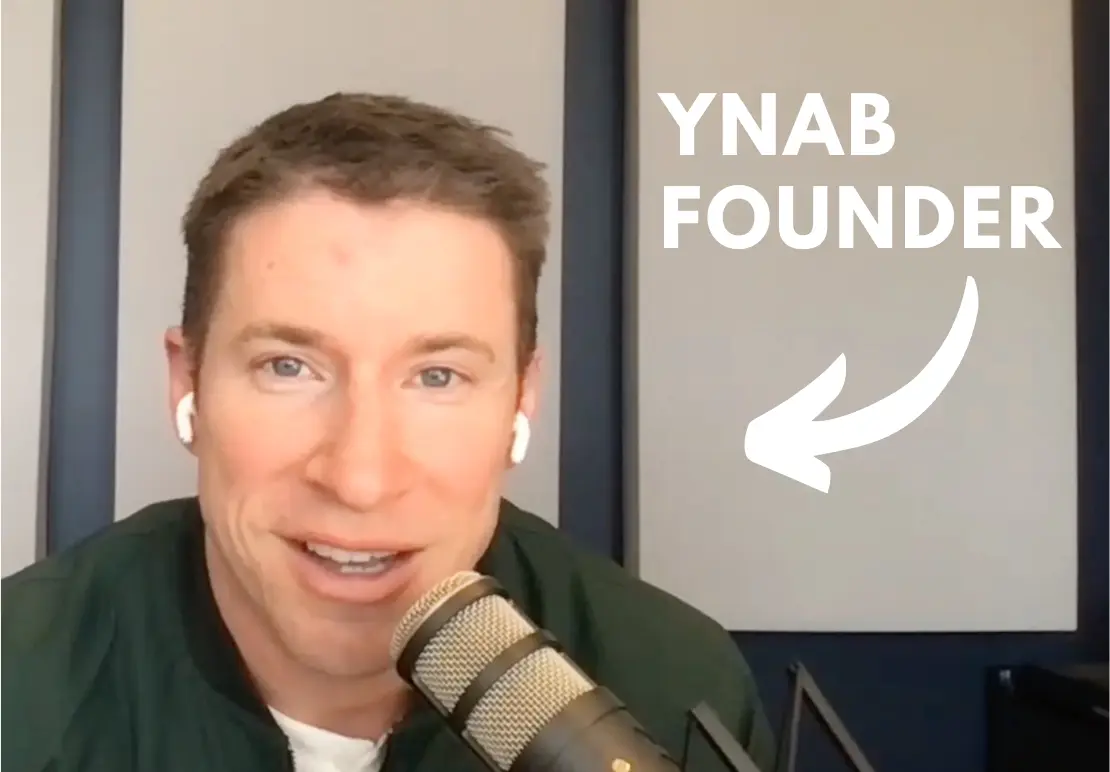
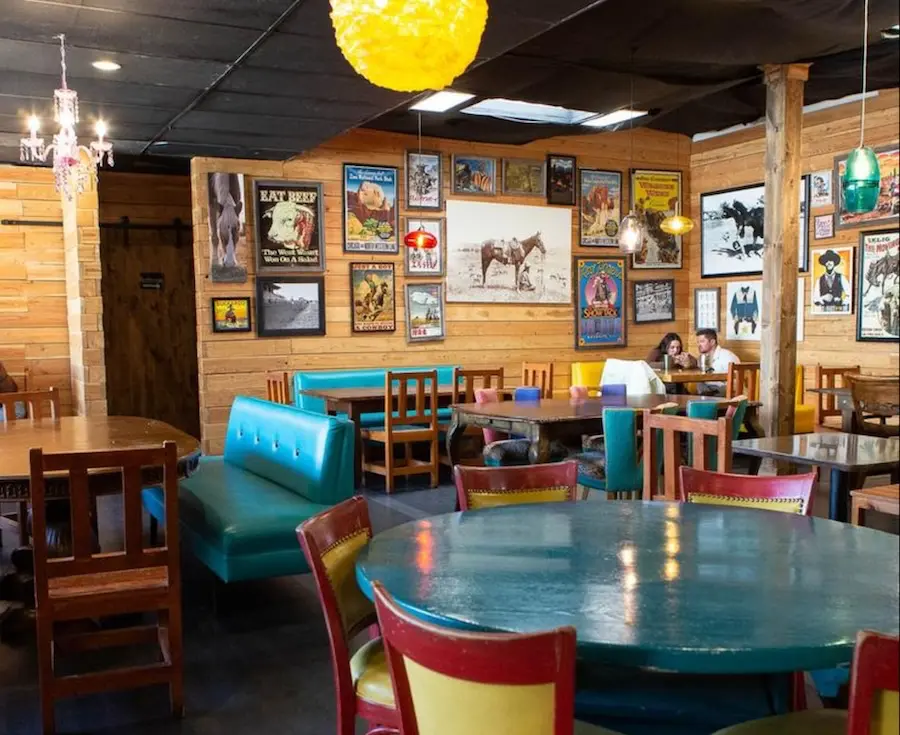
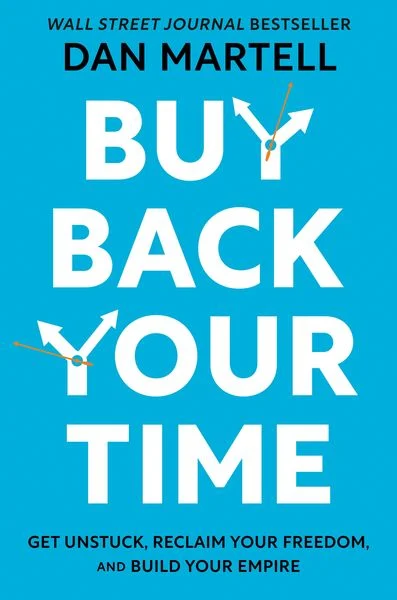
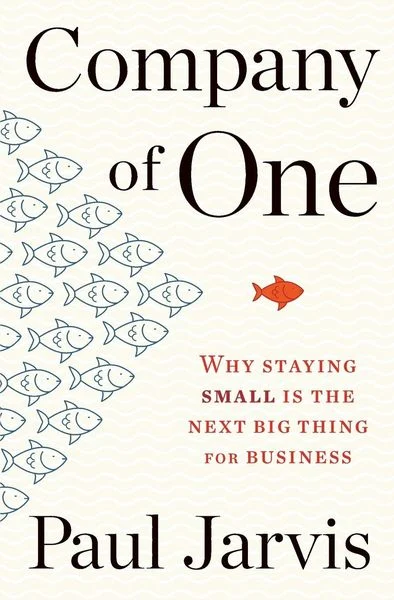
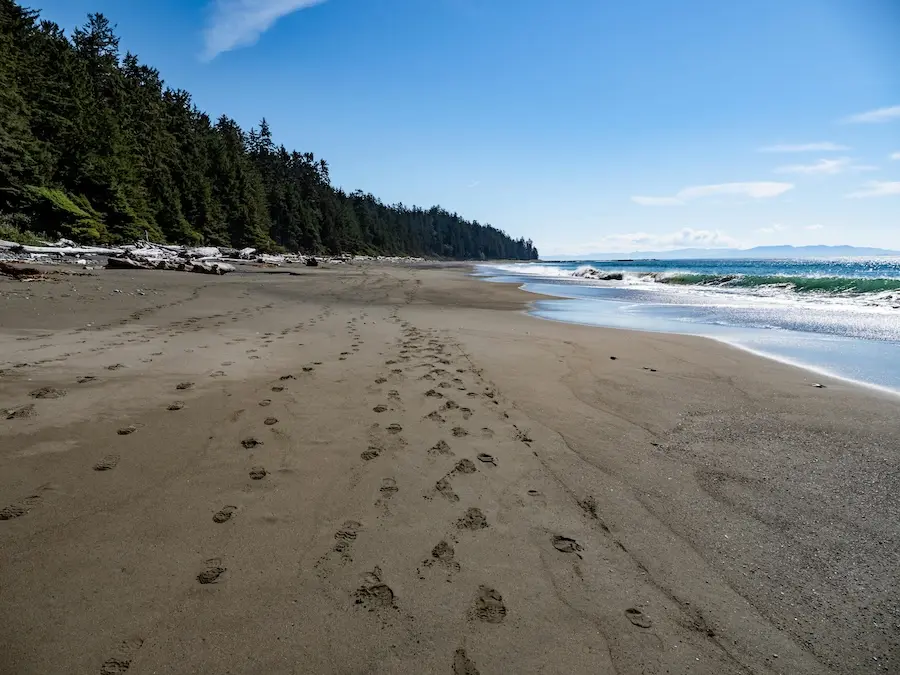
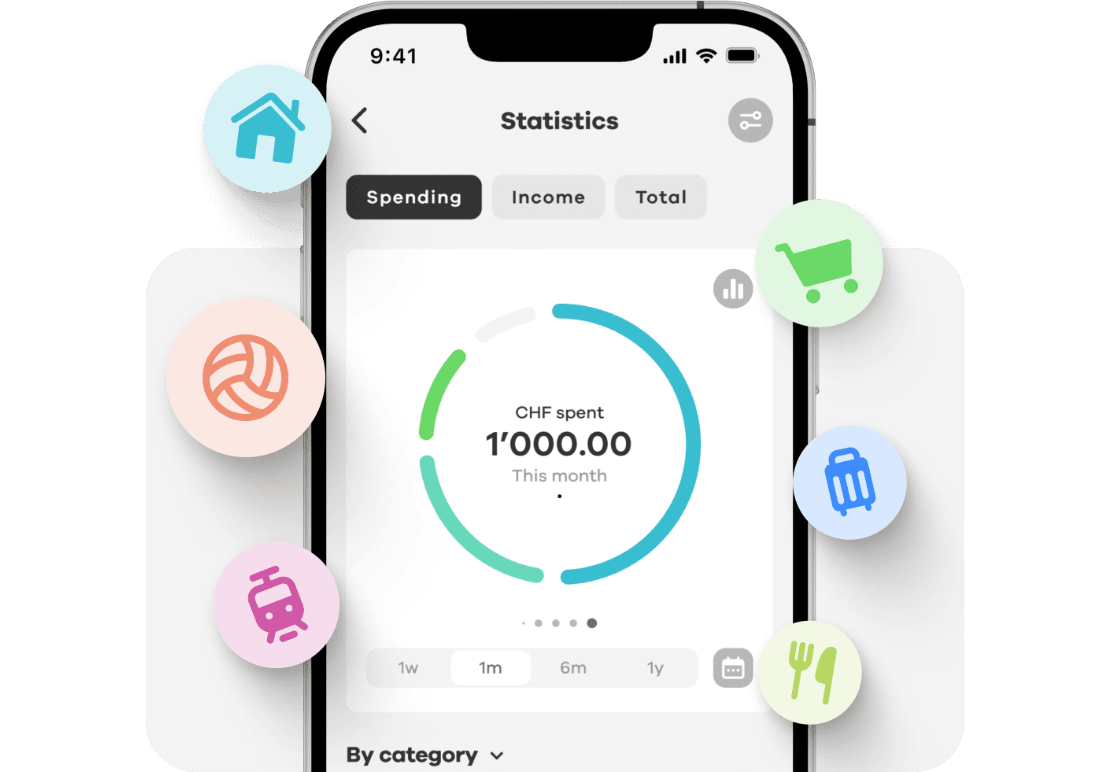
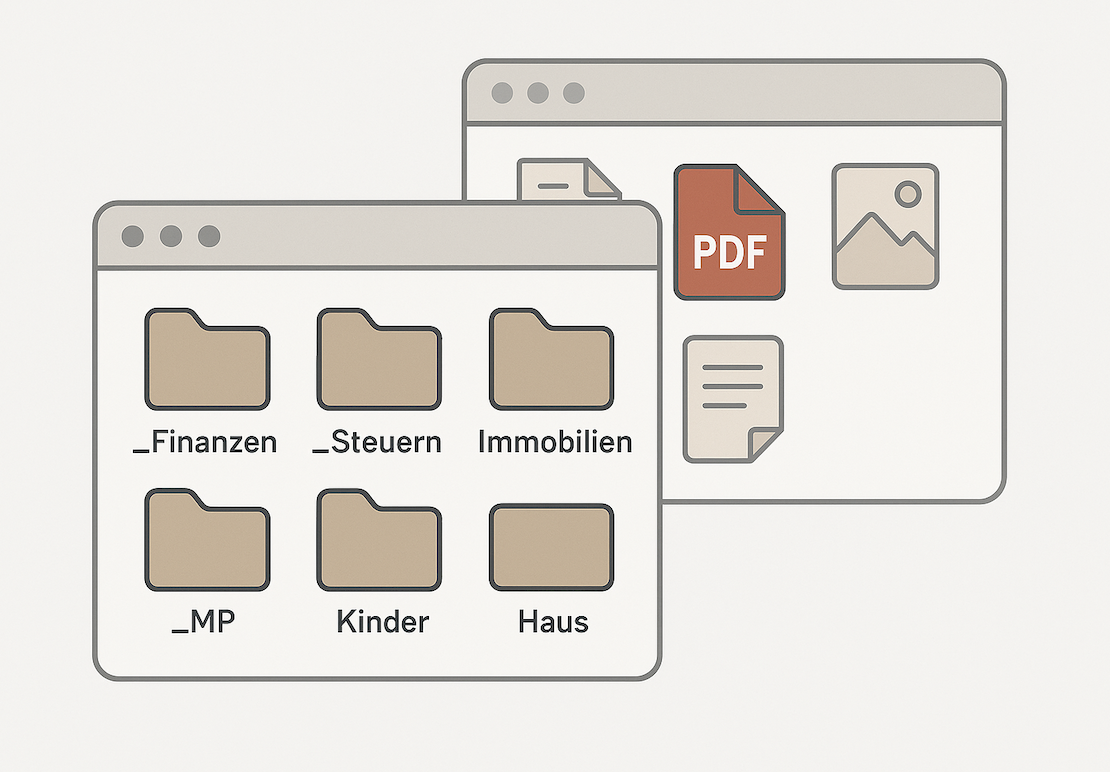
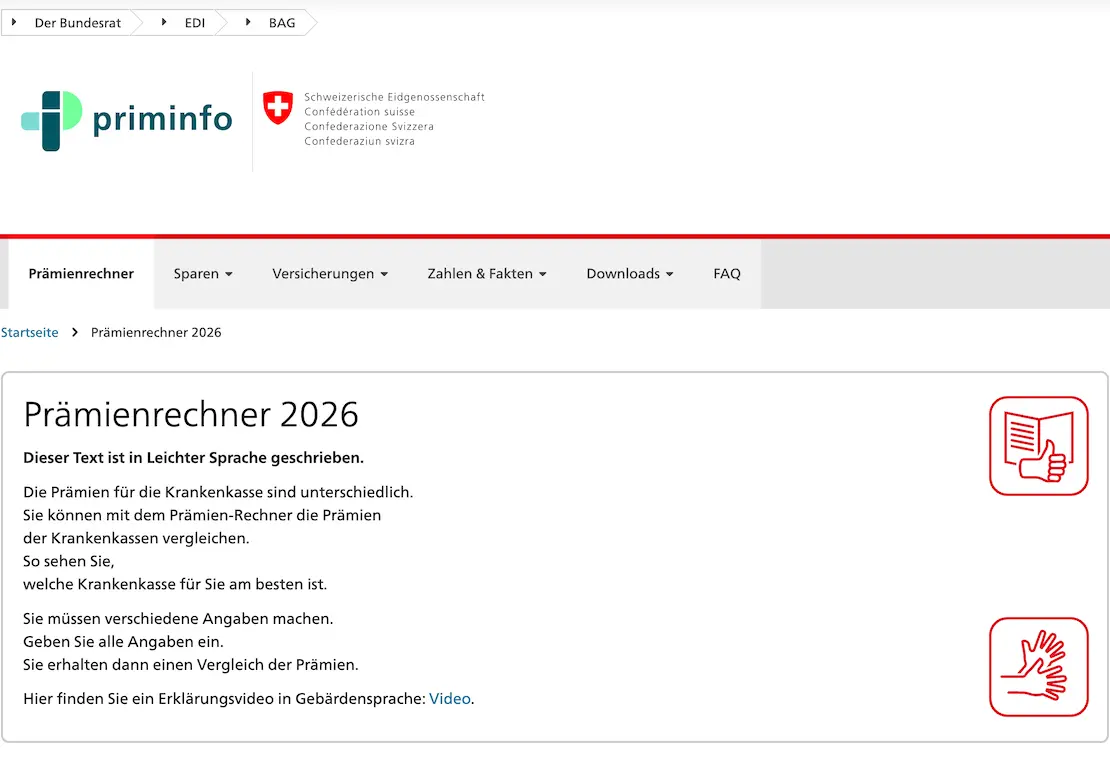
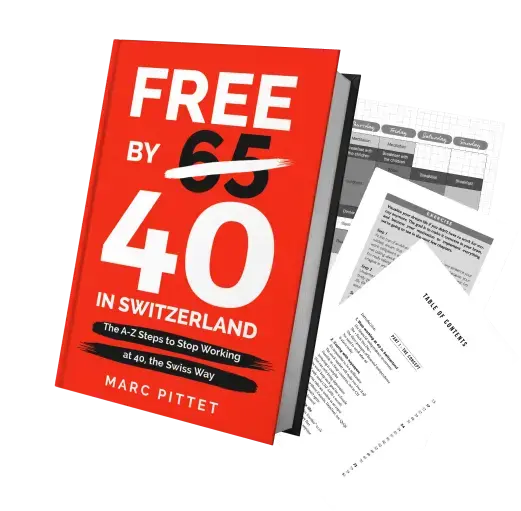
Last updated: April 4, 2024